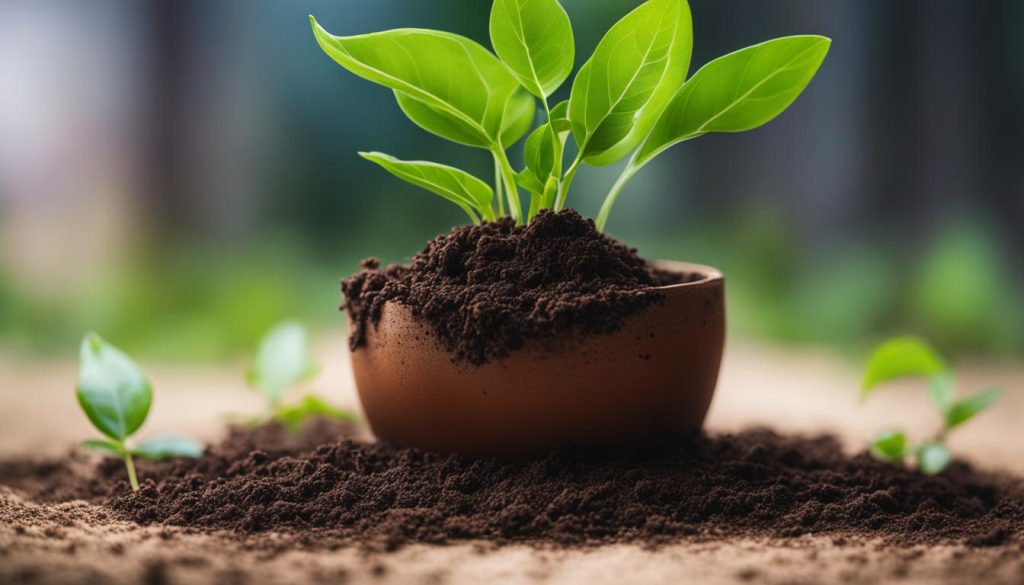In today’s fast-paced world, prioritizing our emotional well-being is crucial for a fulfilling and balanced life. One of the key components of emotional well-being is building and maintaining healthy relationships, which provide us with the mental health support we need.
When it comes to nurturing these relationships, we need to invest time and effort. Effective communication, trust, mutual respect, quality time, and emotional support are the pillars that create a solid foundation for a thriving and emotionally healthy partnership.
Join me as I explore the essential elements that contribute to nurturing emotional health bridges in relationships and how they can significantly enhance our overall well-being.
Key Takeaways:
- Effective communication, trust, mutual respect, quality time, and emotional support are key factors in nurturing a healthy relationship and promoting emotional well-being.
- Open and honest communication is fundamental to a healthy relationship, creating a safe space for both partners to share their thoughts and emotions.
- Building trust requires reliability, consistency, and respect for boundaries.
- Spending quality time together and engaging in shared activities strengthen the bond between partners.
- Show empathy, provide emotional support, and celebrate achievements to strengthen the emotional connection.
Communication is Key to Healthy Relationships
In any healthy relationship, effective communication is the foundation that fosters understanding, connection, and growth. Open and honest communication allows us to express our thoughts, feelings and needs while also providing a safe space for our partners to do the same. Through communication, we build trust, resolve conflicts, and create a deeper emotional connection.
Active listening plays a crucial role in effective communication. It involves hearing the words spoken and understanding the underlying emotions and intentions. When we actively listen, we show empathy and validate our partner’s experiences, enhancing trust and strengthening our bond.
“Communication is not just about words; it’s about connection through understanding.”
Creating an environment where open communication thrives involves creating a safe space for both partners to express themselves without fear of judgment or criticism. This encourages vulnerability and promotes a deeper level of emotional intimacy. It is important to remember that effective communication is a two-way street, requiring both partners to participate in listening, understanding, and expressing themselves actively.
Benefits of Open and Honest Communication:
- Resolving conflicts constructively
- Building trust and emotional intimacy
- Enhancing understanding and empathy
- Strengthening the bond between partners
Open and honest communication is a continuous practice that requires patience, empathy, and a willingness to understand and be understood. We can create a solid foundation for a healthy and fulfilling relationship by prioritizing effective communication.

Cultivating Trust and Mutual Respect
Trust and mutual respect are the cornerstones of a strong and healthy relationship. When trust is present, it creates a foundation of security and allows both partners to feel safe and supported. Mutual respect, on the other hand, fosters a sense of equality, where each person’s thoughts, opinions, and boundaries are valued and honored.
It is important to be reliable and consistent to cultivate trust in a relationship. Keeping your promises and following through on commitments demonstrates that you can be trusted. Additionally, being open and transparent in your communication helps build trust. By honestly sharing your thoughts, feelings, and experiences, you create an environment of vulnerability and authenticity.
Mutual respect involves recognizing and appreciating each other’s individuality. Respecting physical and emotional boundaries shows that you value and honor your partner’s need for personal space and autonomy. It also means avoiding belittling behavior or dismissive attitudes. Instead, strive to understand and validate your partner’s perspectives and opinions, even if they differ from your own.
You lay the foundation for a deep and fulfilling connection by cultivating trust and mutual respect in your relationship. These qualities create a sense of emotional safety, allowing both partners to be vulnerable, share their deepest fears and desires, and truly be themselves. Trust and mutual respect are not static but rather require continuous effort and nurturing. By investing in these aspects of your relationship, you can create a bond that is built on a solid and unshakeable foundation.

The Importance of Trustworthiness
Trustworthiness is a key component of trust and mutual respect. It involves consistently demonstrating honesty, reliability, and integrity in your actions and words. When you are trustworthy, you create a sense of security for your partner, knowing they can rely on you and depend on your word.
To be trustworthy, keeping your promises and following through on commitments is essential. This includes both big and small promises, as they all contribute to building trust. It also means being honest and transparent, even when it may be difficult or uncomfortable. By communicating openly and honestly, you show your partner that they can trust you with their emotions and vulnerabilities.
Trustworthiness also involves acknowledging and taking responsibility for your mistakes. When conflicts or disagreements arise, it is important to approach them with humility and a willingness to learn and grow. Apologizing when necessary and making amends demonstrates your commitment to the relationship and your desire to make things right.
Overall, trustworthiness is fundamental to building trust and mutual respect in a relationship. It requires consistent effort, communication, and integrity. By embodying trustworthiness, you create a strong and resilient bond with your partner based on honesty, reliability, and dependability.
Quality Time and Shared Activities
One of the essential ingredients for a healthy and fulfilling relationship is the intentional investment of quality time and engaging in shared activities. Spending dedicated time together allows couples to deepen their bond and create lasting memories. It provides an opportunity to connect on a deeper level, away from the distractions of daily life. Couples can foster a sense of togetherness and strengthen their relationship by prioritizing quality time.
Engaging in shared activities is equally important in nurturing a strong connection. Finding common interests or trying new hobbies together creates opportunities for shared experiences and shared goals. Whether it’s cooking together, going for a hike, or participating in a dance class, these shared activities strengthen the bond between partners and create a sense of unity.
Table:
| Benefits of Quality Time and Shared Activities in a Relationship | Examples of Quality Time and Shared Activities |
|---|---|
| 1. Enhances communication and understanding | 1. Going for a walk and having meaningful conversations |
| 2. Deepens emotional connection | 2. Cooking a meal together and enjoying a candlelit dinner |
| 3. Creates shared memories | 3. Going on a road trip and exploring new places |
| 4. Provides an opportunity for fun and laughter | 4. Playing board games or engaging in friendly competitions |
| 5. Strengthens the bond between partners | 5. Taking a dance class or learning a new hobby together |
Couples can create a strong foundation for their relationship by actively prioritizing quality time and shared activities. It is important to carve out dedicated time in busy schedules and be present during these moments. Whether it’s a weekly date night or a weekend getaway, these intentional gestures of togetherness contribute to the overall health and happiness of the relationship.
As the saying goes, “Time spent together is never wasted.” Investing in quality time and engaging in shared activities allows couples to build a deeper connection, foster a sense of belonging, and create cherished memories that will last a lifetime.

Emotional Support and Empathy
In any healthy and fulfilling relationship, emotional support and empathy play a vital role. Providing emotional support means being there for your partner, offering a shoulder to lean on, and creating a safe space for them to express their feelings. It’s about showing genuine care and concern and truly listening to their needs and worries.
Empathy goes hand in hand with emotional support. It involves putting yourself in your partner’s shoes and understanding their perspective. Empathy allows you to connect on a deeper level, showing your partner that you truly understand and validate their emotions. It helps build trust and strengthens the emotional connection between you.
When your partner is going through a difficult time, being there for them is essential, providing comfort and reassurance. Acknowledge their emotions, offer encouragement, and let them know you are there to support them unconditionally. Sometimes all it takes is a simple act of kindness, a gentle touch, or a heartfelt compliment to make them feel loved and supported.
Remember, emotional support and empathy are not only reserved for challenging times. Celebrating your partner’s successes and joys with genuine enthusiasm and happiness is equally important. Sharing in their joys and being emotionally present fosters a sense of togetherness and creates a stronger bond.
| Benefits of Emotional Support and Empathy in a Relationship | How to Provide Emotional Support and Empathy |
|---|---|
|
|
“Empathy is about finding echoes of another person in yourself.” – Mohsin Hamid
Keeping the Romance Alive
Keeping the flame of love burning bright in a thriving relationship is crucial. Romance plays a significant role in maintaining a deep emotional connection and keeping the relationship alive and exciting. Couples can infuse their relationship with passion and excitement by incorporating acts of affection and unexpected surprises.
One way to keep the romance alive is through thoughtful gestures. Simple acts of kindness, such as leaving love notes, preparing a favorite meal, or surprising your partner with a small gift, can go a long way in expressing love and appreciation. These gestures show that you value your partner and are willing to put in the effort to make them feel special.
Regular expressions of love and affection are also essential in cultivating a romantic bond. Verbalizing your feelings through heartfelt compliments and words of affection can make your partner feel cherished and adored. Physical affection, such as hugs, kisses, and gentle touches, can also help keep the intimacy alive and strengthen the emotional connection between partners.
Furthermore, prioritizing quality time together and planning special dates can reignite the spark in a relationship. Setting aside dedicated time for each other, whether it’s a romantic dinner at home, a weekend getaway, or a fun activity you both enjoy, allows you to reconnect on a deeper level and create new memories. By disconnecting from technology and being fully present in these moments, you can enhance the romance and create a sense of closeness.

Table: Ideas for Keeping the Romance Alive
| Actions | Description |
|---|---|
| Surprise Date Nights | Plan a surprise date night to keep the excitement alive. It could be a picnic under the stars, a candlelit dinner at home, or a fun outing to a place you both love. |
| Love Notes and Messages | Leave sweet and thoughtful notes or send loving messages to remind your partner of your affection and appreciation. |
| Small Acts of Kindness | Show your partner you care by doing little things for them, like making their favorite breakfast, running errands, or leaving them small surprises. |
| Physical Affection | Express your love through physical touch – holding hands, hugging, kissing, and cuddling – to maintain a sense of closeness and intimacy. |
| Spontaneous Adventures | Embark on spontaneous adventures together, whether it’s a road trip, a hike, or exploring a new city. These shared experiences can create lasting memories and strengthen your bond. |
Incorporating these suggestions into your relationship can nurture the romance and create a lasting, passionate connection with your partner.
Foster Individual Growth
Supporting each other’s individual growth and personal goals is important to maintaining a healthy and fulfilling relationship. When we respect and encourage each other to pursue our passions and hobbies, it allows for personal development and enhances the bond we share as a couple. It is essential to remember that while we grow together, we must also embrace our individualities.
Respecting each other’s personal space is crucial for fostering individual growth. We all have unique needs and desires, and by giving each other the freedom to explore and express ourselves, we create a supportive environment that nurtures personal growth. Understanding and appreciating each other’s aspirations and goals can strengthen our connection and create a sense of empowerment within the relationship.

Embracing Personal Goals
Embracing personal goals within a relationship requires open communication and shared understanding. By discussing our individual aspirations and dreams, we can align our goals and find ways to support each other’s journey. Whether it’s cheering each other on from the sidelines or actively participating and assisting in achieving those goals, our support plays a vital role in fostering growth.
Remember, a healthy relationship is built on the foundation of mutual respect and support for each other’s individuality and personal growth. It is through this nurturing environment that we can thrive as individuals while simultaneously nurturing our partnership.
Table: Personal Growth Goals
| Partner | Personal Goals |
|---|---|
| Partner A | Complete a marathon |
| Partner B | Learn a new language |
| Partner A | Start a small business |
| Partner B | Travel to five different countries |
We create a supportive and fulfilling environment by acknowledging and respecting each other’s personal goals. It allows us to celebrate each other’s achievements and inspire growth in both ourselves and our relationship. Remember, fostering individual growth benefits us as individuals and strengthens the bond we share as a couple.
Resolve Conflicts Constructively
In any relationship, conflicts are inevitable. However, how we handle these conflicts can make a significant difference in the overall health and success of the relationship. Constructive conflict resolution is key to maintaining a strong and thriving partnership.
One important aspect of resolving conflicts constructively is active listening. It is crucial to hear and understand each other’s perspectives and concerns truly. By actively listening, we show respect for our partner’s feelings and experiences, which can help to de-escalate conflicts and promote understanding.
Avoiding blame and criticism is also essential. Instead of pointing fingers and assigning blame, focus on expressing your own emotions and needs in a non-accusatory way. This creates an environment where both partners feel safe to express themselves without fear of judgment or criticism.
Constructive conflict resolution involves seeking mutually beneficial solutions that take into account the needs and desires of both partners. It requires a willingness to compromise, find common ground, and work together to find a resolution that satisfies both parties. Through open communication, empathy, and a commitment to understanding and respecting each other’s perspectives, conflicts can be transformed into opportunities for growth and deeper connection.
Constructive Conflict Resolution Strategies
To effectively resolve conflicts, consider the following strategies:
- Take a pause: If emotions are running high, taking a break and giving each other space to cool down before continuing the conversation can be helpful.
- Use “I” statements: Instead of using accusatory language, express your thoughts and feelings using “I” statements. For example, say, “I feel hurt when…” rather than “You always…”.
- Practice empathy: Put yourself in your partner’s shoes and try to understand their perspective. Validate their feelings and show compassion towards their experiences.
- Seek professional help if needed: If conflicts persist or become too challenging to resolve on your own, consider seeking the guidance of a couples therapist or counselor who can provide tools and techniques to improve communication and conflict resolution.
| Benefits of Constructive Conflict Resolution | Comparison |
|---|---|
| Promotes understanding and empathy | Unconstructive conflict resolution can lead to increased resentment and misunderstanding. |
| Strengthens the bond between partners | Unresolved conflicts can erode trust and damage the relationship over time. |
| Allows for personal growth and self-awareness | Unaddressed conflicts can hinder personal and relational growth. |
| Fosters effective communication skills | Unconstructive conflict resolution can perpetuate negative patterns of communication. |

By approaching conflicts with a constructive mindset and implementing healthy conflict resolution strategies, couples can not only resolve their differences but also strengthen their bond and create a more harmonious and fulfilling relationship.
Conclusion
Building and maintaining fulfilling relationships is essential for our emotional health. We can nurture these important connections by prioritizing effective communication, trust, mutual respect, quality time, emotional support, romance, fostering individual growth, and constructive conflict resolution.
Creating lasting emotional health bridges requires dedication and a proactive approach. It’s important to engage in open and honest communication, actively listen to our partners, and create a safe space for sharing thoughts and emotions. Trust and mutual respect form the foundation of a strong relationship, while quality time and shared activities deepen the bond.
Emotional support and empathy are fundamental in fostering a secure and loving connection. We strengthen the emotional connection by celebrating each other’s achievements and being there through good and challenging times. Keeping the romance alive through thoughtful gestures, regular expressions of love and affection, and prioritizing intimacy adds passion to the relationship.
Lastly, fostering individual growth and respecting each other’s personal goals and individuality are crucial. Supporting and encouraging pursuits of passions and hobbies while growing together as a couple contributes to a fulfilling partnership. Resolving conflicts constructively, taking responsibility, and practicing forgiveness further strengthen the bond.
FAQ
What are the key factors in nurturing a healthy relationship?
Building and maintaining a healthy relationship requires effective communication, trust, respect, quality time, and emotional support.
How important is communication in a healthy relationship?
Communication is crucial in a healthy relationship. It involves active listening, expressing thoughts and feelings, and creating a safe space for open and honest conversation.
What is the foundation of a strong and healthy relationship?
Trust and mutual respect are the foundation of a strong and healthy relationship. This involves reliability, consistency, respecting boundaries, and avoiding belittling behavior.
How can we nurture a strong bond in a relationship?
Spending quality time together and engaging in shared activities helps nurture a strong bond. Dedicated time for date nights, weekend getaways, and hobbies allows for deeper connection and lasting memories.
How can we provide emotional support in a relationship?
Being there for your partner during both good and challenging times is crucial. Showing empathy, providing emotional support, and celebrating achievements strengthens the emotional connection.
How can we keep the romance alive in a relationship?
Thoughtful gestures, regular expressions of love and appreciation, and prioritizing intimacy contribute to a passionate relationship. Physical affection, surprises, and special dates help keep the romance alive.
How can we foster individual growth in a relationship?
Supporting each other’s individual growth and personal goals is essential. Encouraging pursuits of passions and hobbies, respecting personal space, and embracing individuality while growing together contribute to a strong partnership.
How should conflicts be handled in a relationship?
Active listening, avoiding blame and criticism, and seeking mutually beneficial solutions contribute to healthy conflict resolution. Taking responsibility, apologizing when necessary, and forgiveness strengthen the bond.
How can nurturing emotional health bridges promote fulfilling relationships?
Nurturing emotional health is essential for building and maintaining fulfilling relationships. Effective communication, trust, mutual respect, quality time, emotional support, romance, fostering individual growth, and constructive conflict resolution contribute to overall well-being and satisfaction in the relationship.

